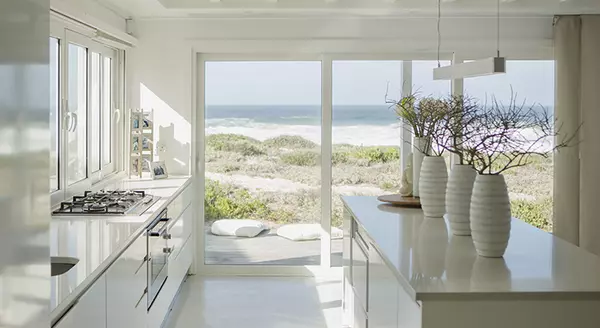![How Owning a Home Grows Your Wealth with Time [INFOGRAPHIC],KCM Crew](https://img.chime.me/image/fs/chimeblog/20230617/16/w600_original_2b311658-ce26-4fa1-8c64-186c94d05c6d-png.webp)
How Owning a Home Grows Your Wealth with Time [INFOGRAPHIC]
How Owning a Home Grows Your Wealth with Time Some Highlights If you’re thinking of buying a home this year, be sure to factor in the long-term benefits of homeownership. Over time, homeownership allows you to build equity. On average, nationwide home prices appreciated by 290.2% over the last 32 years. That means your net worth can grow significantly in the long term when you own a home. Reach out to a real estate professional so you can start your homebuying journey today.

Why Buying a Vacation Home Beats Renting One This Summer
For many of us, visiting the same vacation spot every year is a summer tradition that’s fun, relaxing, and restful. If that sounds like you, now’s the time to think about your plans and determine if buying a vacation home this year makes more sense than renting one again. According to Forbes: “. . . if the idea of vacationing at the same place every year makes you feel instantaneously relaxed, buying a vacation home might be a wise move.” To help you decide if making a move like this is right for you, let’s explore why you may want to consider purchasing a vacation home today. Benefits of Owning Your Vacation Home You don’t have to worry about finding a place to stay. It can be a challenge to find a rental where you want, when you want. Some summer vacation destinations are more popular than others, meaning your favorite place may be booked up in advance. Bankrate explains why owning your vacation home means you don’t have to worry about that sort of inconvenience: “. . . a second home can offer a place to have quality time with your family and ensures that you always have a vacation destination.” It’s an investment. Home values typically appreciate over the long haul. That holds true for your vacation home as well, especially if it’s in an area with growing market demand. This can help grow your net worth with time. Vacation homes may provide tax benefits. If you own a vacation home, you may be eligible for tax deductions based on where it is. However, before buying, you’ll want to consult with a tax professional to discuss first as taxes can vary by location. It could potentially turn into a retirement location. If you love the location of your vacation home, you could potentially sell your primary residence and retire there in the future. How a Pro Can Help You Find Your Perfect Match As you’re preparing for summer vacation, remember, you could potentially visit your second home instead of another rental unit or hotel. If that sounds appealing to you, a local real estate agent is your best resource. They have the knowledge and resources to help you understand the area and what vacation homes are available in your budget. Plus, these agents can explain the perks of how owning a second home can benefit you. SBottom Line If any of these reasons for owning a vacation home resonate with you, reach out to a trusted real estate agent. You still have time to enjoy spending the summer in your vacation home.

Saving for a Down Payment? Here’s What You Need To Know.
If you're planning to buy your first home, then you're probably focused on saving for all the costs involved in such a big purchase. One of the expenses that may be at the top of your mind is your down payment. If you’re intimidated by how much you need to save for that, it may be because you believe you must put 20% down. That doesn’t necessarily have to be the case. As the National Association of Realtors (NAR) notes: “One of the biggest misconceptions among housing consumers is what the typical down payment is and what amount is needed to enter homeownership.” And a recent Freddie Mac survey finds: “. . . nearly a third of prospective homebuyers think they need a down payment of 20% or more to buy a home. This myth remains one of the largest perceived barriers to achieving homeownership.” Here’s the good news. Unless specified by your loan type or lender, it’s typically not required to put 20% down. This means you could be closer to your homebuying dream than you realize. According to NAR, the median down payment hasn’t been over 20% since 2005. In fact, the median down payment for all homebuyers today is only 14%. And it’s even lower for first-time homebuyers at just 6% (see graph below): What does this mean for you? It means you may not need to save as much as you originally thought. Learn About Options That Can Help You Toward Your Goal And it’s not just how much you need for your down payment that isn’t clear. There are also misconceptions about down payment assistance programs. For starters, many people believe there’s only assistance available for first-time homebuyers. While first-time buyers have many options to explore, repeat buyers have some, too. According to Down Payment Resource, there are over 2,000 homebuyer assistance programs in the U.S., and the majority are intended to help with down payments. That same resource goes on to say: “You don’t have to be a first-time buyer. Over 38% of all programs are for repeat homebuyers who have owned a home in the last 3 years.” Plus, there are even loan types, like FHA loans with down payments as low as 3.5% as well as options like VA loans and USDA loans with no down payment requirements for qualified applicants. If you’re interested in learning more about down payment assistance programs, information is available through sites like Down Payment Resource. Then, partner with a trusted lender to learn what you qualify for on your homebuying journey. Bottom Line Remember, a 20% down payment isn’t always required. If you want to purchase a home this year, reach out to a trusted real estate professional to start the conversation about your homebuying goals.
Categories
Recent Posts



![Housing Market Forecast for the Rest of 2023 [INFOGRAPHIC]](https://img.chime.me/image/fs/chimeblog/20230805/16/w600_original_c9462895-f33e-4df3-89f1-2e670cbd6573-png.webp)




![Key Housing Market Trends [INFOGRAPHIC]](https://img.chime.me/image/fs/chimeblog/20230729/16/w600_original_75d142d9-d96f-46e5-bff3-84d495a15913-png.webp)
